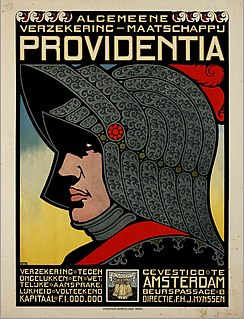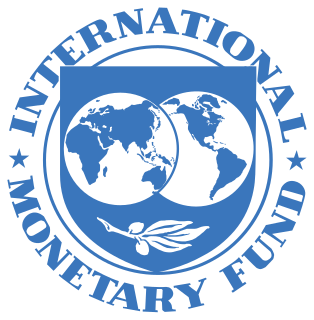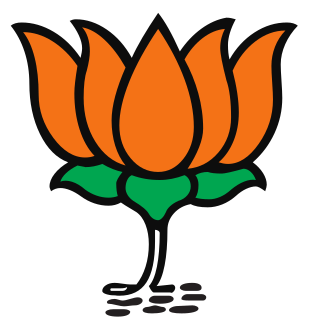
The European Union (EU) is a political and economic union of 27 member states that are located primarily in Europe. The union has a total area of 4,233,255.3 km2 (1,634,469.0 sq mi) and an estimated total population of about 447 million. An internal single market has been established through a standardised system of laws that apply in all member states in those matters, and only those matters, where the states have agreed to act as one. EU policies aim to ensure the free movement of people, goods, services and capital within the internal market; enact legislation in justice and home affairs; and maintain common policies on trade, agriculture, fisheries and regional development. Passport controls have been abolished for travel within the Schengen Area, roaming charges also. A monetary union was established in 1999, coming into full force in 2002, and is composed of 19 member states which use the euro currency. The EU has often been described as a sui generis political entity with the characteristics of either a federation or confederation.

Insurance is a means of protection from financial loss. It is a form of risk management, primarily used to hedge against the risk of a contingent or uncertain loss.

The International Monetary Fund (IMF) is an international financial institution, headquartered in Washington, D.C., consisting of 190 countries. Its stated mission is "working to foster global monetary cooperation, secure financial stability, facilitate international trade, promote high employment and sustainable economic growth, and reduce poverty around the world." Formed in 1944, started on 27 December 1945, at the Bretton Woods Conference primarily by the ideas of Harry Dexter White and John Maynard Keynes, it came into formal existence in 1945 with 29 member countries and the goal of reconstructing the international monetary system. It now plays a central role in the management of balance of payments difficulties and international financial crises. Countries contribute funds to a pool through a quota system from which countries experiencing balance of payments problems can borrow money. As of 2016, the fund had XDR 477 billion.

Macroeconomics is a branch of economics dealing with performance, structure, behavior, and decision-making of an economy as a whole. For example, using interest rates, taxes, and government spending to regulate an economy’s growth and stability. This includes regional, national, and global economies. According to a 2018 assessment by economists Emi Nakamura and Jón Steinsson, economic "evidence regarding the consequences of different macroeconomic policies is still highly imperfect and open to serious criticism."

The Soviet Union, officially the Union of Soviet Socialist Republics (USSR), was a socialist state that spanned Eurasia during its existence from 1922 to 1991. It was nominally a federal union of multiple national republics; in practice its government and economy were highly centralized until its final years. The country was a one-party state governed by the Communist Party of the Soviet Union, with Moscow as its capital within its largest and most populous republic, the Russian SFSR. Other major urban centers were Leningrad, Kiev, Minsk, Tashkent, Alma-Ata and Novosibirsk. It was the largest country in the world, covering over 22,402,200 square kilometres (8,649,500 sq mi), and spanning eleven time zones.
A think tank, or policy institute, is a research institute that performs research and advocacy concerning topics such as social policy, political strategy, economics, military, technology, and culture. Most think tanks are non-governmental organizations, but some are semi-autonomous agencies within government or are associated with particular political parties, businesses or the military. Think-tank funding often includes a combination of donations from wealthy individuals and personal contributions, with many also accepting government grants.

The one-child policy was a population planning initiative in China implemented between 1980 and 2015 to curb the country's growth by restricting many families to a single child. It had wide-ranging social, cultural, and economic effects. Its efficacy in reducing birth rates and defensibility from a human rights perspective have been subjects of controversy.
Neoliberalism, or neo-liberalism, is a term used to describe the 20th-century resurgence of 19th-century ideas associated with free-market capitalism. A significant factor in the rise of conservative and libertarian organizations, political parties, and think tanks, and predominately advocated by them, it is generally associated with policies of economic liberalization, including privatization, deregulation, globalization, free trade, austerity and reductions in government spending in order to increase the role of the private sector in the economy and society; however, the defining features of neoliberalism in both thought and practice have been the subject of substantial scholarly debate.

The Bharatiya Janata Party is one of two major political parties in India, along with the Indian National Congress. It has been the ruling political party of the Republic of India since 2014. The BJP is a right-wing party, and its policy has historically reflected Hindu nationalist positions. It has close ideological and organisational links to the much older Rashtriya Swayamsevak Sangh (RSS). As of 2020, it is the country's largest political party in terms of representation in the national parliament and state legislatures.
Public policy is an institutionalized proposal to solve relevant and real-world problems, guided by a conception and implemented by programs as a course of action created and/or enacted, typically by a government, in response to social issues. Beyond this broad definition, public policy has been conceptualized in a variety of ways.

A state's foreign policy or external policy is its objectives and activities in relation to its interactions with other states, unions, and other political entities, whether bilaterally or through multilateral platforms. The Encyclopedia Britannica notes that a government's foreign policy may be influenced by "domestic considerations, the policies or behaviour of other states, or plans to advance specific geopolitical designs."

An academic discipline or field of study is a branch of knowledge, taught and researched as part of higher education. A scholar's discipline is commonly defined by the university faculties and learned societies to which they belong and the academic journals in which they publish research.

Monetary policy is the policy adopted by the monetary authority of a nation to control either the interest rate payable for very short-term borrowing or the money supply, often as an attempt to reduce inflation or the interest rate, to ensure price stability and general trust of the value and stability of the nation's currency.
The Conservative Party of Canada, colloquially known as the Tories, is a federal political party in Canada. It was formed in 2003 by the merger of the two main right-leaning parties, the Progressive Conservative Party and the Canadian Alliance, the latter being the successor of the Western Canadian-based Reform Party. The party sits at the centre-right to the right of the Canadian political spectrum, with their federal rival, the Liberal Party of Canada, positioned to their left. The Conservatives are defined as a "big tent" party, practising "brokerage politics" and welcoming a broad variety of members, including "Red Tories" and "Blue Tories".

The Brookings Institution, often simply called Brookings, is an American research group founded in 1916. Located on Think Tank Row in Washington, D.C., the organization conducts research and education in the social sciences, primarily in economics, metropolitan policy, governance, foreign policy, global economy, and economic development. Its stated mission is to "provide innovative and practical recommendations that advance three broad goals: strengthen American democracy; foster the economic and social welfare, security and opportunity of all Americans; and secure a more open, safe, prosperous, and cooperative international system."
Policy is a deliberate system of guidelines to guide decisions and achieve rational outcomes. A policy is a statement of intent and is implemented as a procedure or protocol. Policies are generally adopted by a governance body within an organization. Policies can assist in both subjective and objective decision making. Policies used in subjective decision-making usually assist senior management with decisions that must be based on the relative merits of a number of factors, and as a result, are often hard to test objectively, e.g. work–life balance policy... Moreover, Governments and other institutions have policies in the form of laws, regulations, procedures, administrative actions, incentiv and voluntary practices. Frequently, resource allocations mirror policy decisions.

Life insurance is a contract between an insurance policy holder and an insurer or assurer, where the insurer promises to pay a designated beneficiary a sum of money upon the death of an insured person. Depending on the contract, other events such as terminal illness or critical illness can also trigger payment. The policy holder typically pays a premium, either regularly or as one lump sum. The benefits may include other expenses, such as funeral expenses.

Foreign Policy is an American news publication, founded in 1970 and focused on global affairs, current events, and domestic and international policy. It produces content daily on its website, and in six print issues annually.
PubMed Central (PMC) is a free digital repository that archives open access full-text scholarly articles that have been published in biomedical and life sciences journals. As one of the major research databases developed by the National Center for Biotechnology Information (NCBI), PubMed Central is more than a document repository. Submissions to PMC are indexed and formatted for enhanced metadata, medical ontology, and unique identifiers which enrich the XML structured data for each article. Content within PMC can be linked to other NCBI databases and accessed via Entrez search and retrieval systems, further enhancing the public's ability to discover, read and build upon its biomedical knowledge.